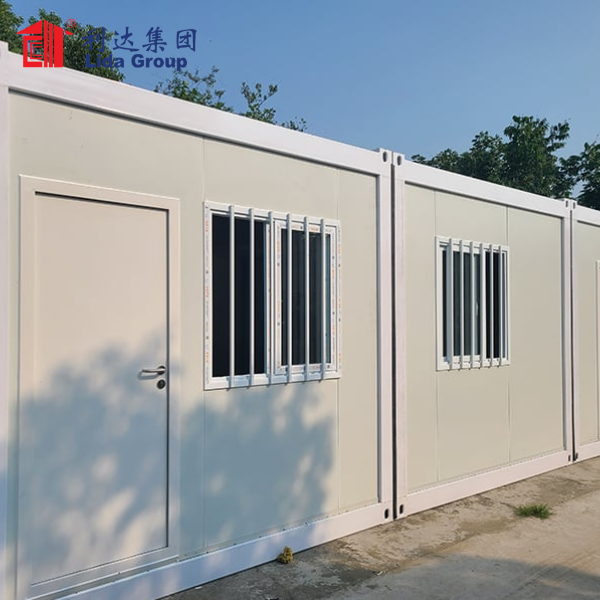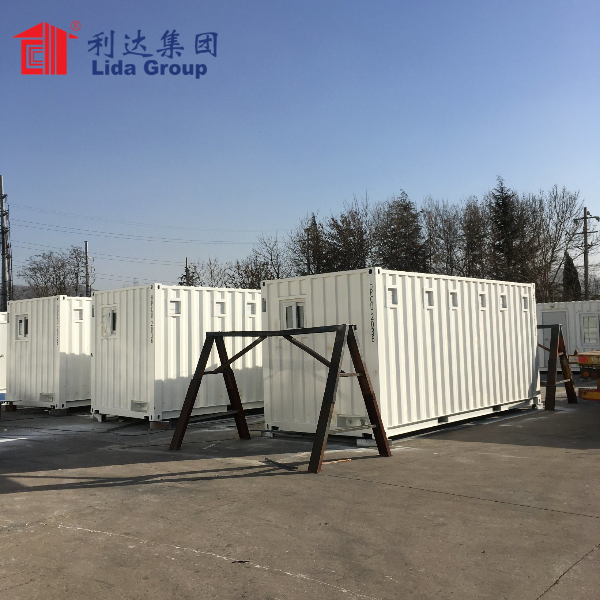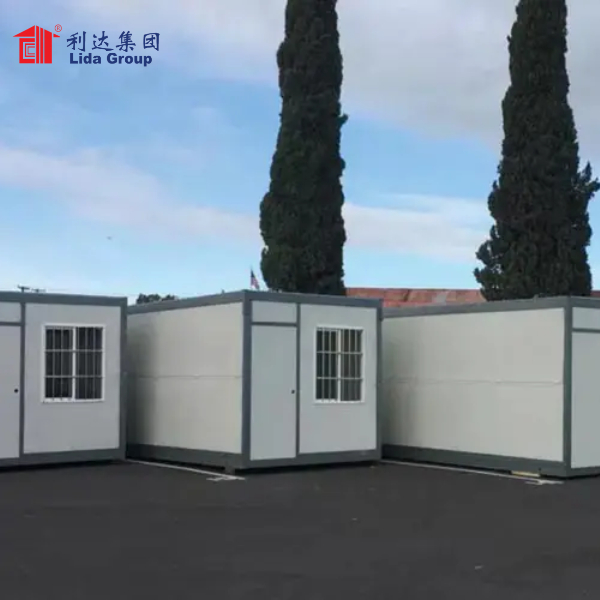Introduction:
With the growing concern for environmental sustainability, the housing industry has been experiencing a shift towards more eco-friendly and energy-efficient solutions. Lida Group, a prominent provider of modular building solutions, has made significant strides in this area with their container houses. These innovative structures not only offer practical and affordable housing options but also promote sustainable living practices. This article explores Lida Group’s container houses, highlighting their features that enable individuals to embrace sustainable lifestyles.
- The Need for Sustainable Housing:
1.1 Environmental Impact of Traditional Housing:
Traditional housing construction methods often have a substantial negative impact on the environment. The extraction and transportation of building materials, as well as the energy consumption during construction and operation, contribute to carbon emissions and resource depletion. Additionally, the waste generated during the construction process further exacerbates environmental concerns.
1.2 Benefits of Sustainable Housing:
Sustainable housing aims to minimize the ecological footprint of buildings. By incorporating energy-efficient systems, utilizing renewable resources, and reducing waste generation, sustainable housing offers several benefits. These include a reduced carbon footprint, lower energy consumption, improved indoor air quality, and increased use of environmentally friendly materials.
- Lida Group’s Container Houses: Promoting Sustainability:
2.1 Repurposed Shipping Containers:
Lida Group’s container houses are constructed using repurposed shipping containers, which are durable, readily available, and cost-effective. By repurposing these containers, the company contributes to waste reduction and resource conservation. This approach aligns with the principles of the circular economy, where existing resources are utilized to their fullest potential.
2.2 Energy Efficiency:
Container houses can be designed to maximize energy efficiency. The compact size of these structures allows for efficient heating and cooling, reducing energy consumption. Additionally, insulation materials and techniques can be employed to minimize heat transfer, ensuring comfortable indoor temperatures year-round. Integration of renewable energy sources, such as solar panels, further decreases reliance on non-renewable energy and lowers utility costs.
2.3 Sustainable Materials and Practices:
Lida Group prioritizes the use of sustainable materials in their container buildings. From eco-friendly insulation materials to low-VOC (volatile organic compounds) paints, efforts are made to minimize the environmental impact of the construction process. Water-saving fixtures, such as low-flow faucets and toilets, can also be incorporated to promote responsible water usage.
2.4 Waste Reduction and Recycling:
Container houses are built with a focus on reducing waste generation. The modular construction process allows for precise material planning, minimizing construction waste. Furthermore, any waste that is generated can be recycled or repurposed, contributing to a more sustainable building practice.
- Advantages of Lida Group’s Container Houses:
3.1 Affordability and Accessibility:
Container houses offer an affordable housing solution, particularly for individuals or families on a limited budget. The use of repurposed shipping containers significantly reduces material costs compared to traditional construction methods. Moreover, these houses can be easily transported and assembled, providing accessible housing options in both urban and remote areas.
3.2 Customization and Adaptability:
Container houses offer a high degree of customization and adaptability. The modular nature of these structures allows for easy expansion, partitioning, and reconfiguration. Additional containers can be added or removed as needed, accommodating changing family sizes or lifestyle preferences. This flexibility ensures that the living environment remains suitable and functional over time.
3.3 Mobility and Portability:
Container houses are inherently mobile and portable. They can be easily transported to different locations, making them ideal for those who frequently move or desire a temporary living arrangement. This mobility enables individuals to explore new opportunities and environments without the need for extensive relocation processes.
3.4 Durability and Resilience:
Shipping containers are designed to withstand harsh conditions, making container houses durable and resilient. Their sturdy construction ensures structural integrity, providing a safe and secure living environment. This durability is particularly advantageous in areas prone to natural disasters, where container houses can serve as emergency shelters.
- Promoting Sustainable Lifestyles:
4.1 Energy Conservation:
By incorporating energy-efficient systems and encouraging responsible energy usage, container houses promote energy conservation. Residents can adopt practices such as utilizing natural light, optimizing appliance usage, and employing energy-saving devices to further reduce their carbon footprint.
4.2 Water Management:
Container houses can be designed to include water-saving features, such as rainwater harvesting systems and greywater recycling. These practices reduce water consumption and promote responsible water management. Additionally, education on water conservation practices can help residents develop sustainable habits.
4.3 Waste Reduction and Recycling:
Living in a container house encourages individuals to adopt waste reduction practices. Recycling and composting can be integrated into daily routines, minimizing the amount of waste sent to landfills. Residents can also be encouraged to purchase products with minimal packaging and opt for reusable alternatives.
4.4 Community Engagement and Education:
Lida Group can actively engage with residents and the surrounding community to promote sustainable living practices. Workshops, seminars, and educational programs can be organized to raise awareness about sustainable lifestyles, energyconservation, waste reduction, and other eco-friendly practices. By fostering a sense of community and providing resources for sustainable living, Lida Group can contribute to a broader movement towards sustainability.
- The Future of Container Houses:
5.1 Technological Advancements:
Advancements in technology will further enhance the sustainability and functionality of container houses. Integration of smart home systems, energy management solutions, and automation technologies will optimize energy usage and improve overall efficiency. Additionally, the development of new sustainable materials and construction techniques will offer even more eco-friendly options for container house construction.
5.2 Innovative Designs and Configurations:
As container houses gain popularity, architects and designers will explore new designs and configurations to maximize space utilization and comfort. Creative solutions, such as multi-level container structures and modular expansions, will provide residents with diverse and customizable living spaces.
5.3 Integration with Sustainable Infrastructure:
Container houses can be integrated into sustainable infrastructure projects, such as eco-friendly neighborhoods or eco-villages. By combining container houses with shared resources like renewable energy systems, community gardens, and water management systems, a holistic approach to sustainability can be achieved.
5.4 Collaboration with Government and NGOs:
Collaboration between Lida Group and government entities or non-governmental organizations (NGOs) can help promote container houses as a sustainable housing solution. Incentives, subsidies, and policy support can be provided to encourage the adoption of container houses, particularly in areas where affordable and eco-friendly housing is in high demand.
Conclusion:
Lida Group‘s container houses exemplify the company’s commitment to sustainable living and eco-friendly construction practices. By repurposing shipping containers and incorporating energy-efficient systems, these houses provide affordable and customizable housing options while minimizing environmental impact. The advantages of container houses, including affordability, customization, mobility, and durability, make them a viable solution for individuals and families seeking sustainable lifestyles. As the demand for sustainable housing continues to grow, Lida Group’s container houses are poised to play a significant role in reshaping the housing industry and fostering a more sustainable future.
Post time: Sep-26-2023



